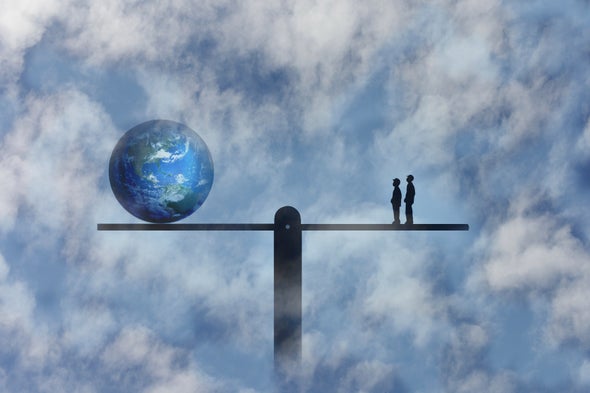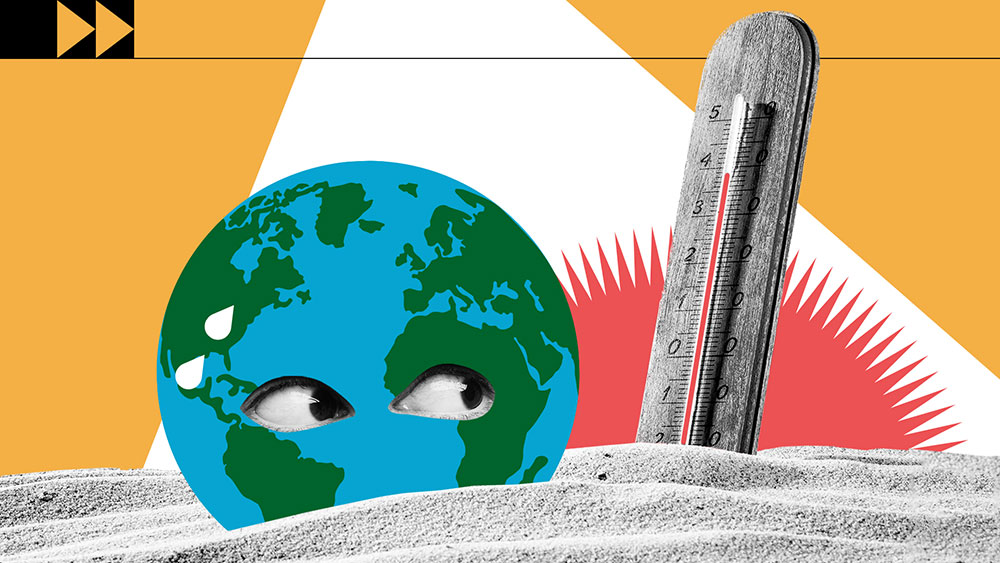FACTS ABOUT CHANGES IN CLIMATE
CLIMATE CHANGE
by Masooma Khokhar
The empty promises are the same and the inaction is the same. So what exactly are we doing wrong and how do we fix it? We’re going to kick this off with some basic science. So bear with me, because this is important. These are the levels of carbon dioxide in our atmosphere over hundreds of thousands of years. But this spike in carbon dioxide at the very end that took off during the industrial revolution. We started breaking CO2 records in 1950, and we haven’t stopped till date do you know why? Well, scientists say there’s a 95% chance that human activity is the cause. We’ve been burning more and more fossil fuels like oil and coal, which release CO2, to power our homes, factories, airplanes and cars. There’s also a lot more of us. The global population has tripled in the past 70 years. And we’re consuming more products from animals that release another pollutant called Methane. So all those gases are in the air, and when sunlight gets into the earth’s atmosphere, some of the heat gets trapped, and the planet gets warmer. That’s why they call it the “Greenhouse Effect”. But the concern is not that the earth is getting warmer. But the concern is not that the earth is getting warmer. “It’s actually the warmest temperature on Earth since the last ice age since 10 thousand years ago.” The UN says that right now, our world is about 1 degree hotter than pre-industrial times. That’s around the year 1800 which is okay. In fact, the UN says if we warm by 1.5 degrees before the end of the century we should be fine.

Source: by Getty images
The UN says even 2 degrees would 'probably' be alright. But again, the problem is speed. Because right now, we are on track to hit 1.5 degrees in only ten years and if we don't slow that warming down, it could mean catastrophe within my life-time, and maybe yours too. And we’re already getting a taste. “Climate change is here. Climate change is happening. We are well into the 6th mass extinction event.” ”Europe is currently colder than the Artic.” “More than a thousand people being rescued just in the early morning hours of Sunday.” “Millions of people are likely to suffer worsening food and water shortages.” ‘The drought that’s now in its tenth year is a phenomena that’s here to stay.’ “We’ve never seen a year’s worth of rain in less than seven days.” Sea levels are rising about 3 millimeters a year because seawater expands as temperatures get warmer. Melting ice sheets and glaciers also add trillions of tons of freshwater into our oceans. People around the world are already losing their homes. And if things carry on, millions more of us will have to pack up too.
Entire coastal cities could be underwater within 80 years. Like Miami in the US or Osaka in Japan. Entire island nations in the pacific could completely disappear. “Natural disasters becoming more and more intense and are frequent with devastating consequences. The dramatic impacts of droughts in different parts of the world are creating a situation that is a real threat to humankind. And we are not doing enough.” If 99% of doctors said to you, take this medicine, or you will get really sick and probably die you would take it. Who wouldn’t take it? The problem is, at the moment, we don’t have any medicine.” Now, there is a plan to slow all this down. Back in 2016, world leaders signed the so-called ‘Paris Agreement’.
And the big pledge is to cap temperatures rising by 1.5 degrees or a maximum of 2, before the year 2100. So countries set their own targets on how much CO2 they emit. But here’s the thing Three years after the agreement, global CO2 levels are still going up. “CO2 emissions have been going up the last year by two per cent so that's actually above the average of the last ten years. So it's started to increase again and it doesn't look too good. In some ways, we’re going backwards. "The United States will cease all implementation of the nonbinding Paris accord and the draconian financial and economic burdens the agreement imposes on our country." The US, one of the world’s biggest polluters, has pulled out of the Paris deal. Russia and China are accused of not giving themselves ambitious targets in the first place ambitious targets in the first place. Turkey and Poland want to build more power plants that use coal. And then there’s the skeptics. It’s a political decision, that it’s man-made global warming. Human influences CO2 and other stuff.

Source: un.org.climate/change
“The ground base temperature data has been massaged to show an increase but the satellite data showed no increase.” On the other hand, there is positive momentum. There’s more awareness and some countries are making progress. India, Morocco, and the Gambia have massive renewable energy projects. There are different countries doing different things really successfully some countries are, for example, making all public transport free in the cities. What a great way to encourage people out of their cars. But experts say what’s needed now is an even bigger push to change everything about the way we run our world. Business as usual has got to change. Politics as usual has got to change In order to combat that we have to change the system that has allowed it to happen. You can’t have infinite growth on a finite planet. And everyone can do that by shifting to renewable energy, reducing the use of cars, use trains more, cycle more, eat less meat consume a bit more carefully. So where does that leave us? Well there’s only so much bike-riding and light-bulb replacing you and I can do every day. But the truth is that it’s those everyday things that are going to change anyway. Even coffee could run out if farmers can’t grow it. So what is expert advice? Is that it’s down to all of us, to change our ways and shake things up, or climate change is going to do it for us.


Comments
Post a Comment